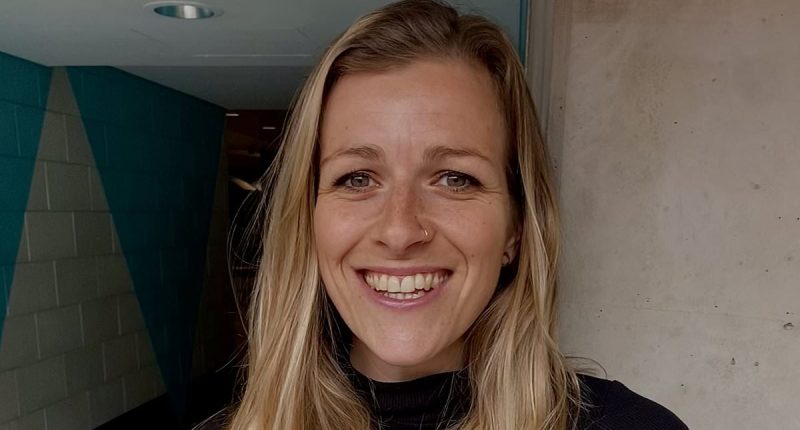Share this @internewscast.com
A decade ago health chiefs launched a bold national drive with a simple message: tackle high blood pressure, cut deaths – and save the NHS billions.
The need was urgent. Hypertension, as it is known medically, affects a third of adults and dramatically raises the risk of heart attacks, strokes, kidney failure and even dementia.
Because it causes no symptoms, many go undiagnosed until serious damage is done. Yet caught early, these outcomes are preventable. So the NHS rolled out initiatives such as the health checks for all over-40s and, more recently, free in-pharmacy blood pressure screenings. But today the picture is bleaker than ever. An estimated 14 million UK adults now live with high blood pressure – a figure that’s steadily rising.
Rates of kidney disease and heart failure are also climbing. Once seen as a condition of older age, doctors now warn of a surge in younger adults developing the problem. And NHS data shows a quarter of 45 to 64-year-olds with hypertension aren’t getting it under control, compared with one in seven older patients. Shockingly, up to 80 per cent of those diagnosed don’t take their medication properly.
But there are simple steps to cut the risks from high blood pressure – and promising treatments being developed could one day eliminate the need for daily tablets.
So what is fuelling the rise in younger patients? How worried should you be? And is it possible to manage blood pressure without medication? Our experts explain all you need to know…
The NHS says high blood pressure and heart issues mainly affect older adults – but reports suggest it’s an issue among the young. Is it really?
Despite the widespread belief that hypertension is an old-age problem, doctors are increasingly treating younger generations.

For Dr Pauline Swift, people in their 20s and 30s make up ‘the majority’ of her referrals for treating high blood pressure
‘I’ve been doing this clinic for 20 years. When I started, roughly one in five people with hypertension referred to me were below the age of 30. That’s easily doubled,’ says Professor Jacob George, chair of cardiovascular medicine at the University of Dundee. ‘Now I’d say one in three referred to me are young, and obesity is the main driver – it really is one of the biggest challenges we face.’
For Dr Pauline Swift, a consultant nephrologist at Epsom and St Helier University Hospitals NHS Trust and chair of the Blood Pressure UK charity, people in their 20s and 30s make up ‘the majority’ of her referrals for treating high blood pressure.
Late last year a study involving more than 200 countries and published in the Lancet Neurology journal also found that a surge in high blood pressure among under-55s was to blame for a rise in stroke deaths.
Tracking thousands of people over 30 years, the specialists said it was responsible for a little over half of all strokes.
Yet research also suggests just a third of all younger people under 40 with hypertension have it under control compared to 54 per cent among older adults – mainly because they’re unaware that they have it.
So why has there been such a surge in cases among the young?
Lack of exercise, poor diet and excess alcohol have long been blamed for the rise in hypertension. But the risk that chronic stress poses – particularly among the young – has fallen under the radar.
‘Living life online and the disruption this can have on sleep patterns impacts blood pressure over time,’ Dr Swift says. ‘You can be a slim and active young person in your 20s and 30s, but you can’t forget we live more sedentary lifestyles now. People also eat what they think is a healthy diet, but processed foods are inevitably a part of it. Our salt intake is far higher than it ever was 20, 30, 40 years ago.’
Research suggests adults consume up to ten times the amount of sodium – the metallic element in salt – required for their metabolisms every day.
But tracking the reasons behind surging cases is in its early stages.
‘We can’t discount underlying genetic risks. We just don’t have enough research yet to know what those factors are,’ Dr Swift adds.
I am reluctant to take medication for high blood pressure. What else can I do?
A Lifestyle changes are typically the first port of call before prescribing medication. When it comes to diet, experts are increasingly worried about ultra-processed foods (UPFs).
‘We’ve got to be realistic about the fast-food lifestyle we lead. These calorie-dense foods, rich in saturated fats and sugars, are so easily available,’ Professor George says.
The other dietary choice you can make is affordable and readily available: fibre. Unlike other carbohydrates such as sugar and starch, it is not absorbed by the body and helps keep the gut healthy.
Research last year concluded that consuming an extra five grams per day would reduce the blood pressure reading top number (systolic) by 2.8 and bottom (diastolic) by 2.1.
Associate professor Francine Marques, a hypertension expert at Monash University and the study’s lead author, says: ‘Despite numerous guidelines recommending lifestyle modifications as
first-line treatment for hypertension, specific recommendations regarding fibre intake have been notably absent.’
If high blood pressure readings still fail to drop after three months, medication is considered the most effective next step.
There is conflicting advice about when to take medication – does it matter?
For years Britons were advised to take their blood pressure medication in the morning to prevent it rising throughout the day.
But this historical guidance changed in 2019 in light of a Spanish study that found night-time pill takers slashed their risk of heart attacks, heart failure or strokes by more than 40 per cent.
Last week, research published in the journal JAMA contradicted both claims, concluding the medication works just as well in the morning or before bed.
‘We’re the tiebreaker of “does it matter or not when you take the pills”, and our findings are that it doesn’t make any difference,’ says Professor Scott Garrison, the study’s lead author and family medicine expert at the University of Alberta.
A 2022 British Heart Foundation-funded study also found tablets worked equally well regardless of when they’re taken.
‘Take the medication regularly and at around the same time each day. That is the most important thing,’ Professor George adds.
I have been on blood pressure medication for a while but my numbers still aren’t great – should I be concerned?
Blood pressure naturally fluctuates throughout the day. For this reason, doctors assess average measurements over weeks and even months.
Not taking medication as prescribed, however, remains the most common cause of stubbornly high readings.
Research also suggests up to half of all patients quit taking tablets within just a year.
A quarter take them only ‘some of the time’.
‘Hypertension medication is not like antibiotics. You don’t take them for a week or two – it’s the rest of your life,’ Professor George says.
Many patients may also be on outdated medication.
Professor Peter Sever, an expert in clinical pharmacology and therapeutics at Imperial College London, says: ‘Beta blockers were the number one drug choice for high blood pressure in 1995, but we’ve moved on.
‘Trials have shown they are much less effective at preventing strokes and heart attacks than [newer drugs called] ACE inhibitors, for example. They have very little role in hypertension management now, except as a third or fourth medication.’ ACE inhibitors work by preventing the production of angiotensin II, a hormone that constricts blood vessels and raises blood pressure.
‘If weeks later patients are still experiencing uncontrolled readings, doctors should look at changing the dose or adding a second or third medication,’ Professor Sever adds.
What are my options if I still don’t respond well to the pills?
Figures suggest that up to one in ten adults don’t respond to blood pressure treatment.
‘They have very high cardiovascular risk, and likely heart or kidney damage,’ Dr Swift says. ‘We’ll look for underlying causes such as adrenaline-secreting tumours.’
Cushing’s syndrome – a disorder caused by prolonged exposure to high levels of the hormone cortisol, or issues with supplying blood to the kidneys, are other potential known causes.
Some medications – such as ibuprofen, ADHD drugs and the combined oral contraceptive pill – can counteract the effect of blood pressure tablets.
Should the treatment be different for men and women?
Evidence suggests women may be at a disadvantage with heart health.
Professor Vijay Kunadian, an expert in interventional cardiology at Newcastle University, says: ‘Women’s heart troubles may need to be treated differently because of their biology.’
Research has found that to cause problems blood pressure doesn’t need to be as high in women as in men because women’s arteries have smaller diameters.
‘There’s not enough evidence yet to say, “Yes, women should be treated for hypertension at a lower blood pressure level than men”,’ says Professor Kunadian.
What is also often poorly understood – both by many doctors and by patients – is that women’s risk of high blood pressure and cardiovascular problems also dramatically increases in mid-life as a result of hormonal changes linked to the menopause.
Before this stage, which usually hits between the ages of 45 and 55, the female sex hormone oestrogen protects blood vessels, keeping them flexible and dilated. But waning oestrogen levels causes them to stiffen and narrow.
‘If you look at clinical trials, often men make up 75 per cent of volunteers,’ Professor Kunadian adds. ‘Doctors may not be comfortable prescribing [women] medication, as there isn’t as much evidence.’
Are there any new treatments on the horizon?
Pills have been the go-to treatment for hypertension for decades, but side effects can range from headaches and nausea to muscle cramps.
A new wave of convenient treatments could soon change this.
One, called Zilebesiran, which is injected, has proved successful in its third round of trials at keeping blood pressure consistent.
The drug works by preventing the production of angiotensin. A final larger trial involving thousands of Britons is expected to start as early as the end of this year.
Professor Manish Saxena, an expert in clinical pharmacology at Queen Mary, University of London, and the UK Zilebesiran trial co-ordinator, says: ‘We know that patients don’t like taking pills every day. This could be the start of a shift in how we approach blood pressure management.’
Last month, a second-round trial of another experimental drug, called Lorundrostat, presented to the American College of Cardiology’s annual conference, found that it was twice as effective at lowering blood pressure than current treatments.
Professor Sever says: ‘I think both have the potential to work as first line drug treatment options.’













